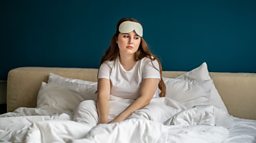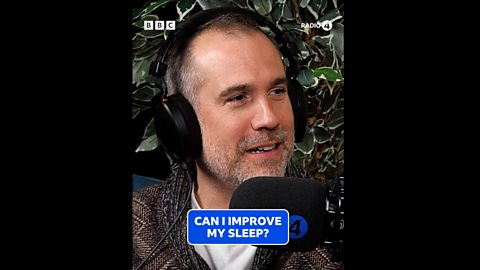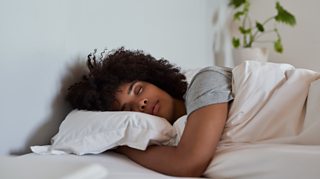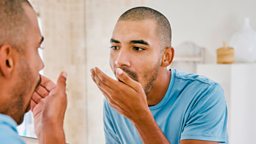Four tips to help you stop stressing about sleep
Is sleep anxiety keeping you up? Worried you’re not getting the recommended eight hours every night?
There are so many reports online suggesting a lack of sleep can cause a plethora of health conditions, it's hardly surprising we’re concerned about the quality and quantity of the sleep we’re getting.
In the What’s Up Docs? podcast, twins Chris and Xand van Tulleken flip the question and ask whether missing the odd night’s sleep could actually have advantages.
So if stressing about sleep is stopping you slumber, try these tips…

1. Don’t be terrified of the sleep monster
During the night, we go through several cycles, from light sleep to deep sleep over about a 90-minute period. So it’s not uncommon to wake up during a light sleep cycle. Usually, we will then go back to sleep naturally, but if we're anxious or stressed or if there are external noises, we might become conscious that we’ve woken up and then it's more difficult to get back to sleep.
It sounds obvious but try to stay calm and relaxed. Avoid checking the time as that might increase your anxiety. Try reading or listening to music. It might even be helpful to get up and be active for a short while. After some relaxation time, you should find that you will go back to sleep.
“Many of us think of sleep as this sort of monster that needs to be subdued and bludgeoned into submission, rather than a wonderful cuddly teddy bear that you can embrace,” says Russell Foster, Professor of Circadian Neuroscience at Oxford University.
2. Tackle any life stresses or anxieties before bed
Most people don't have a sleep problem, they have an anxiety or a stress issue. So during the day, try to dissipate your anxiety by doing what relaxes you, like yoga, exercise or mindfulness. Some people find writing a to-do list in bed can help them relax and get to sleep quicker.
These things should help manage your stress so that if you do wake in the night, you won’t be kept awake worrying.

3. Don’t panic if you have bad night
Many great things have been achieved on little sleep, from explorer Earnest Shackleton crossing the ice of South Georgia, to scientists working round the clock in pursuit of a Nobel prize. Many of us have disrupted nights but still manage to raise children and do our jobs.
A lack of sleep might even give you the focus you need for the task ahead. Studies show that after a sleepless night you can still effectively focus on one task. As sleep expert Russell Foster says, “sleep is variable, dynamic, flexible and sometimes we need to override it for extenuating circumstances”.
However, your effectiveness in completing a task will dissipate if you try to do more than one thing at the same time while sleep deprived. And some activities, like driving on little sleep, can put yourself and others at risk.
4. Don’t obsess over getting eight hours a night
The idea that everyone needs exactly eight hours of sleep per night is not strongly supported by scientific evidence. While it has become a widely accepted notion, research suggests that optimal sleep duration varies significantly among individuals and across different age groups.

Why the "golden eight hours" of sleep is "misleading"
Prof Russell Foster explains why we shouldn't be obsessed with having eight hours sleep.

Is your phone disrupting your sleep?
We’ve all heard that blue light emitted from the screens of our tablets and phones can have a negative impact on our sleep. But some of the evidence on this is inconclusive and in fact, one recent study suggested that blue light may only delay the onset of sleep by a few minutes.
Russell Foster believes that the main culprit is the content we’re looking at before we go to bed. Research suggests that doom-scrolling on social media is likely to be the worst offender for sleep disruption. Try not to get sucked into your phone or computer when you’re about to go to sleep and even better, leave gadgets outside your room to avoid temptation.
And finally, if you are getting enough sleep, but still feel fatigued, this may be a symptom of an underlying health problem such as a mental health issue. In this case, seek advice from your doctor.













